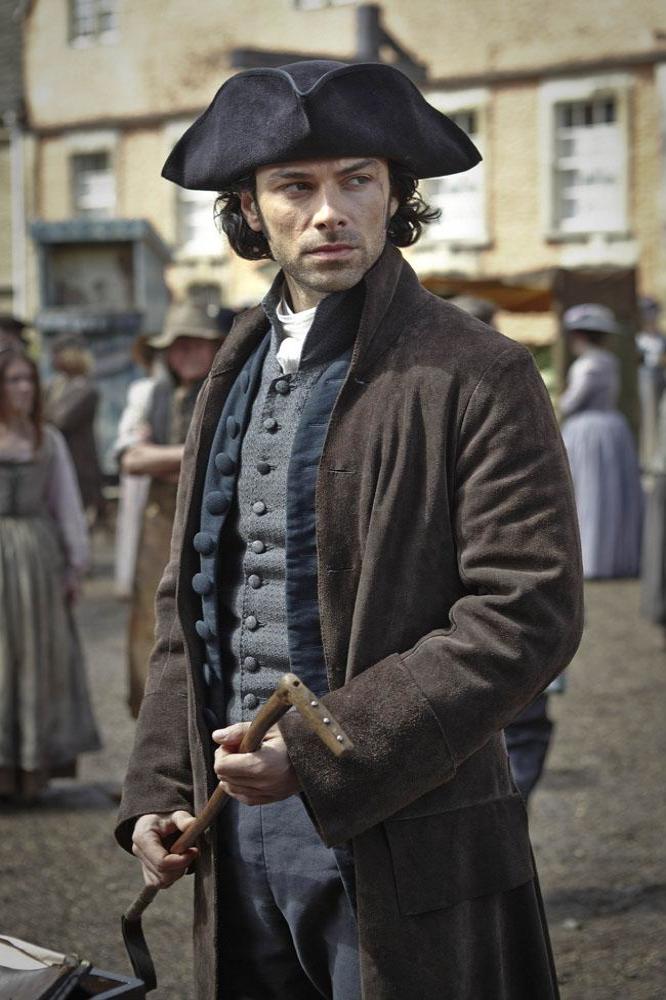'Poldark' has a historical adviser to offer tips on "gestures, greetings and aggressions".

Aidan Turner as Poldark
The popular drama series - which sees Aidan Turner in the title role - is set in the 18th century, so it is important for producers to make sure the exchanges between characters are accurate for their time.
Writing for New Statesman, Hannah Greig, who is also a senior Lecturer in Early Modern History at the University of York, explained: "Much of my academic research has focused on ideas of status and hierarchy in 18th-century Britain, and working with the 'Poldark' production has given me the chance to consider how preoccupations with hierarchy and deference might be enacted in the most ordinary of ways - through words, greetings, gestures, emotional responses, motivations and aggressions.
"What might a flashy middle class man serve at a dinner party? How would a politician sign a letter? Would everyone know how to curtsy? How would a gentleman or lady meet an acquaintance on the street? What does a footman actually do? Would a woman get drunk in a tavern? What games might you see children playing?
"These are the kinds of questions that need answers in order to put period drama on to the screen."
And Hannah also considers things like the sorts of books the characters would have on their shelves as the tiny details can affect a lot of things.
She explained: "Over time I have become deeply invested in the characters, contextualising their worlds as I read a script to preempt later questions or to add in details that might otherwise be missed. In series one, for example, Elizabeth Poldark is seen reading Rousseau. Such a detail can create a raft of knock on considerations at any point in filming. Is Rousseau the right choice for her? Might it influence her choices? If we see a shelf of books in the background what else should be there? If the director wants a close up shot, which pages should be selected and why?"
Tagged in Aidan Turner

